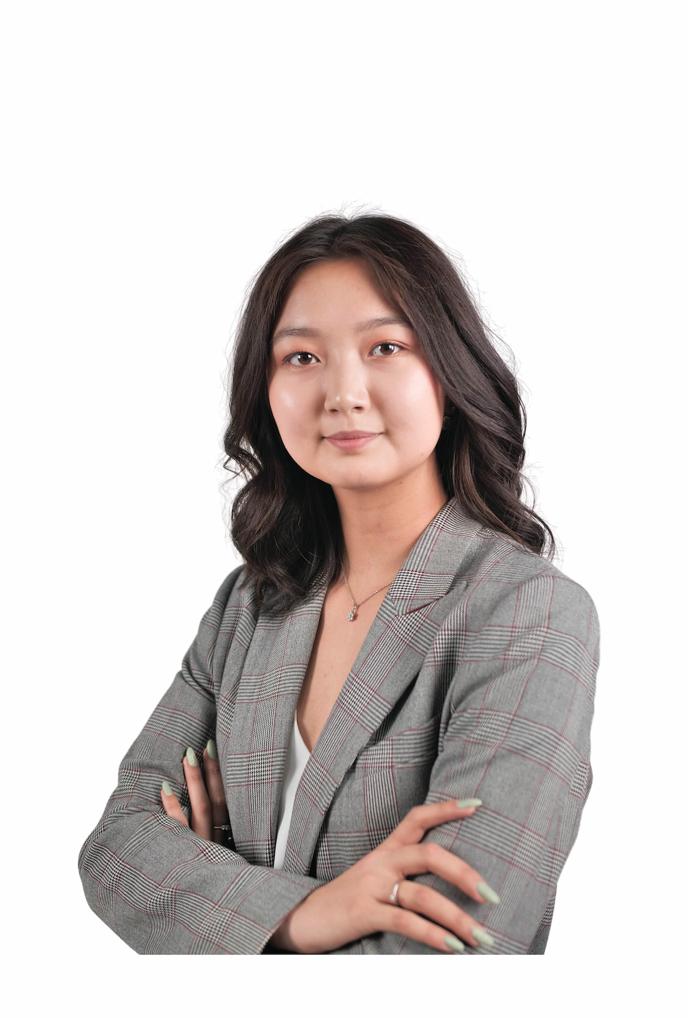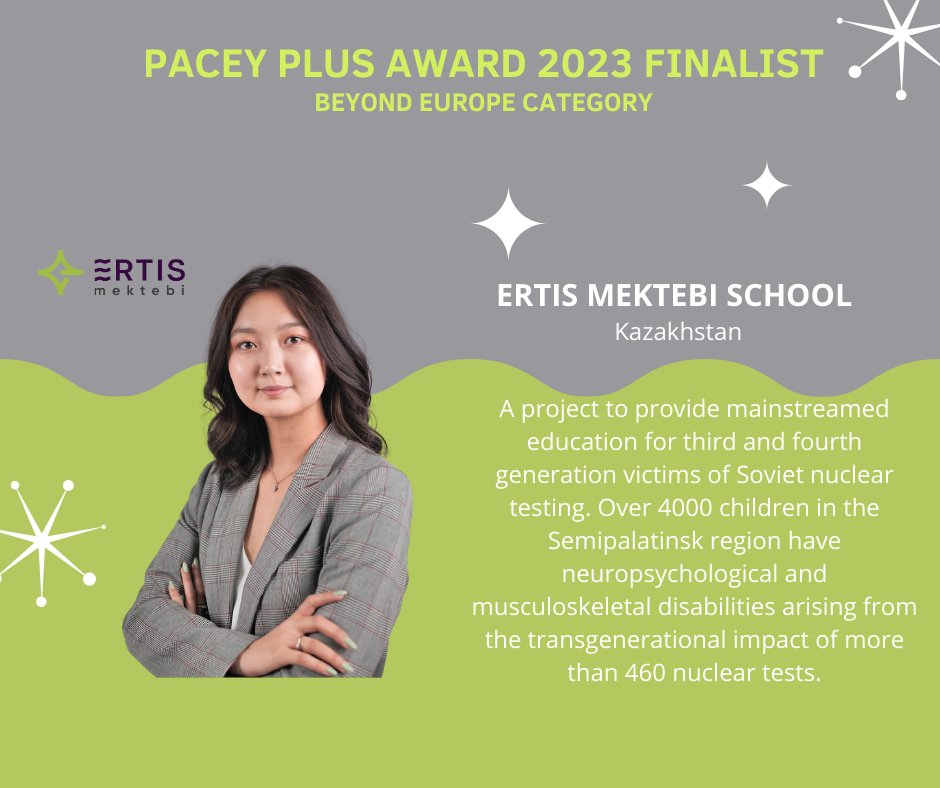ASTANA – Helping children became a mission for Aruzhan Audanbekova, whose Ertis Mektebi School project aimed at providing mainstream education to children from the East Kazakhstan Region affected by nuclear testing made it to the final of the Peace, Nuclear Abolition and Climate Engaged Youth (PACEY) Awards competition on Jan. 21.

Aruzhan Audanbekova holds a bachelor degree in sociology from Nazarbayev University. Photo from Audanbekova’s personal archive.
Audanbekova, a native of Ust-Kamenogorsk city in the East Kazakhstan Region, knows the hardships people have sustained from the nuclear testing.
Nearly 1.5 million people have suffered the consequences of nuclear testing, including more than 4,000 children with neuropsychological and musculoskeletal disabilities arising from the transgenerational impact of more than 460 nuclear tests conducted by the Soviet Union at the infamous Semipalatinsk Nuclear Test Site (NTS).
Kazakhstan, the Central Asian nation with a territory nearly the size of Western Europe and a population of 19 million, voluntarily dismantled the nuclear arsenal that it had inherited following the collapse of the Soviet Union back in 1991. It was the world’s fourth largest at the time, including 1,040 nuclear warheads for 104 SS-18 intercontinental ballistic missiles and 370 nuclear-tipped cruise missiles.
The education approach is aimed at establishing a school where children with disabilities and children without health problems study together.
“The idea of the project did not come to me all at once. It was a gradual step-by-step process of me realizing the scale of the problem that people, especially children with special education needs, face daily,” said Audanbekova in an interview for this story.
“When I went to study in Astana, I met a lot of people from other regions who were making jokes about people from our region being mutants or other inappropriate things just because of the Semipalatinsk nuclear test site. All of that stigma made me feel very sorry for people who were actual victims of those nuclear tests,” she added.
The school has four different programs catered to children’s individual needs, an aspect that Audanbekova finds paramount. At this stage, the team focuses on the primary school level.
With her project, she strives to provide an individual approach to every kid and bridge the rising education gap between urban and rural areas.
Conducting psychological and physiological tests is one of the first stages in deciding what program fits a child.

A PACEY award banner with Audanbekova’s project. Photo credit: baselpeaceoffice.org
“We decided to conduct a sociological study of the problem to understand its scale. We are working on that and will adjust the programs we have already prepared to the study’s findings,” she said.
The school plans a technical launch soon and a grand opening in September.
“We are reconstructing a swimming pool, opening a massage room, hiring speech therapists for children, and have different activities like Japanese volleyball and an outdoor playground,” she added.
Besides children, Audanbekova also plans to educate parents on how to “stimulate children to achieve the highest potential.” She cited a survey her mother’s school conducted, revealing that a quarter of the children had special educational needs.
“Parents of these children realized they had special educational needs. But they did not know how to support their children properly without sending them to special correctional schools. They thought the best way for them is to ignore these problems and send children to general educational schools,” she said.
Encouraging parents to send children to special schools, however, is difficult. Audanbekova’s team relies on social media to raise awareness about their project.
“Only ten parents decided to entrust us with their children’s future. We appreciate even these ten parents,” she added.
Speaking about the award, Audanbekova said it was “very exciting” to become a finalist and meet like-minded people and highly qualified professionals. The PACEY Awards are held annually in conjunction with the Basel Peace Forum and the Basel Intergenerational Forum on peace, climate action and nuclear disarmament.
“We felt very grateful and honored to be presenting our project at such a global scale. It was a great opportunity to listen to other people’s stories, their projects, and their ways of helping people around the world,” said Audanbekova.
Audanbekova’s project is one of nine finalists. The winners were Peace in Our Schools (Georgia), Adopt a Tree, not a Weapon (Democratic Republic of Congo) and Storytelling as a Catalyst of Action for Peace, Love, and Climate Justice in the MENA region (Middle East and North Africa).
“We have established many useful contacts with people from all over the world and even with people from Kazakhstan who are interested in our sphere, but we did not know about it,” she added.
While the project might still be in its infant stage, Audanbekova is optimistic about future plans.
“In the future, we would like to conduct lessons with graduates of leading international and Kazakh universities as teachers. It will help children understand that there is a wide variety of great opportunities and they need to study and work hard for these opportunities to come true,” she said.
According to Marzhan Nurzhan, deputy director of Basel Peace Office and co-founder of Youth Fusion, a global youth network for the abolition of nuclear weapons, over 80 youth projects submitted their applications.
“The nine finalists are just a sample of the quality and level of youth action on these important issues for humanity and the planet,” said Nurzhan, who is also from Kazakhstan. “The PACEY Award supports innovative projects which empower youth to lead transformative actions in peace, climate security and disarmament.”

